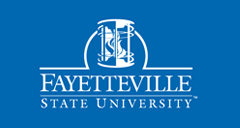Abstract
The American public education system is undergoing significant changes. This is in regard to what students should be learning and how teachers should deliver quality instruction. English language learners (ELLs) are a group that demands time, attention, and special consideration. This is due to their increasing population in public schools and their low academic performance when compared to their native English-speaking students (Samson & Collins, 2012). English language learners are one of the fastest-growing student populations in the United States, with over 4.6 million students as of 2015 (McFarland et al., 2017). This qualitative study with a narrative inquiry approach aimed to explore ESL teachers' and school leaders’ perspectives of culturally relevant pedagogy. This study sought to answer the following guiding research question: What are ESL teachers’ and school leaders’ perspectives of best practices for creating a culturally responsive and inclusive curriculum to find relevant connections among English language learners in K-8 social studies?
Recommended Citation
Wynne, Matthew John and Hadley, Landon
(2022)
"ESL Teachers and School Leaders Perspectives: Culturally Relevant Pedagogy in Elementary and Middle Grades Social Studies,"
Journal of Research Initiatives: Vol. 6:
Iss.
1, Article 3.
Available at:
https://digitalcommons.uncfsu.edu/jri/vol6/iss1/3
Included in
Adult and Continuing Education Administration Commons, Bilingual, Multilingual, and Multicultural Education Commons, Curriculum and Instruction Commons, Disability and Equity in Education Commons, Junior High, Intermediate, Middle School Education and Teaching Commons, Other Educational Administration and Supervision Commons, Special Education and Teaching Commons, Student Counseling and Personnel Services Commons
